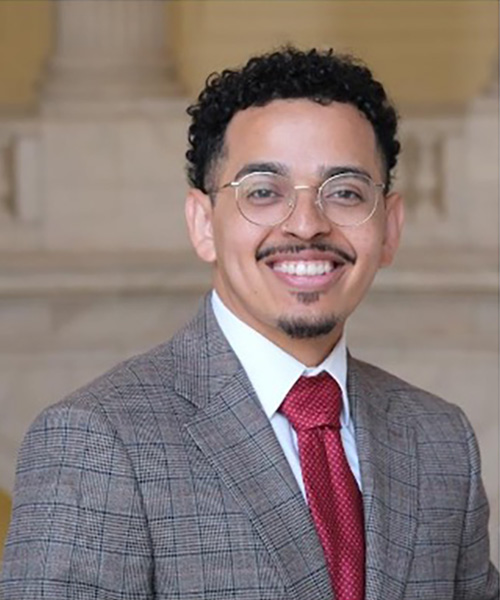
Dialogue Without Trust
Daniel Castro Bonilla | 2025年5月31日
响应: Georgetown Students Reflect on Student Dialogue in Beijing and Hong Kong
Bennie Chang
请注意:中英文网站上发表的教日志均为英文。
I enjoyed the virtual discussions we had with Tsinghua University students during the U.S.-China Student Dialogue, but the in-person conversations were on a different level. The online sessions were structured—we were given clear questions, usually centered around policy, which helped us dive deep into specific topics. However, once we were on the ground in Beijing, the conversations shifted. We still talked about policy, but the dialogue became more personal. More cultural. I felt like I stopped talking to “Chinese counterparts” and started talking to friends. Three moments in Beijing stood out to me most.
First, the Georgetown University alumni reception. By this point, I had spent enough time with some of the Tsinghua students that our conversations felt comfortable and easy. I ended up spending the whole evening with three of them: my two group members from our artificial intelligence (AI) and technology working group—both seniors—and a freshman I had met in our very first virtual call. We talked a lot about our high school experiences and how different the systems were. For them, it was all about testing and rankings; for us, the approach was more holistic. They were surprised to learn that most American college students take around five classes per semester. Some of them were juggling up to 10. We sat under the ornate ceiling, sharing Peking duck and trading stories. It didn’t feel like a policy event. It felt like real connections.
Second was our walk through the Summer Palace. The lake, the pagodas, the view from the top of the tower—it was all beautiful. However, what I remember most was the chance to talk casually with students interning at Tsinghua’s Center for International and Strategic Studies. We compared coursework, academic pressures, and what students studied in each department. It was one of the first times we were all in the same place, just walking and talking. After weeks of Zoom calls, it felt natural and much welcomed.
Third, lunch in the Tsinghua cafeteria. This might seem like a small moment, but it stuck with me. The cafeteria was massive and divided by region, with foods representing different parts of China. I loved seeing the variety and getting to ask my groupmates about which dishes they liked and why. The food was cheap, delicious, and—most importantly—it felt like a glimpse into their daily life.
My biggest takeaway from Beijing was not about policy, although I learned a lot from my Chinese teammate in our AI and technology working group. What made this experience meaningful was getting to know people beyond the talking points. That is what made it special.
In Hong Kong, we had less time to connect with university students, but I still remember a conversation with a junior thinking about going to graduate school abroad. She was considering the United Kingdom, Canada, and Australia, but said her professor had discouraged her from applying to the United States. This was during President Donald Trump’s tough policy on international students, and it surprised me to see how directly it was influencing students' decisions around the world—now impacting someone I was speaking with firsthand.
I am incredibly thankful for the chance to engage with both Chinese and Cantonese students. It gave me insight into not just what people think, but how they live and what matters to them. I would not have gotten that kind of access just from being at Georgetown, even with its large international student body. Huge thanks to Tuoya and Wesley for making this all possible. I am truly grateful.
Bennie Chang (SFS’26) is a student at Georgetown University majoring in regional and comparative studies.

Daniel Castro Bonilla | 2025年5月31日

Isabella Stratta | 2025年5月31日
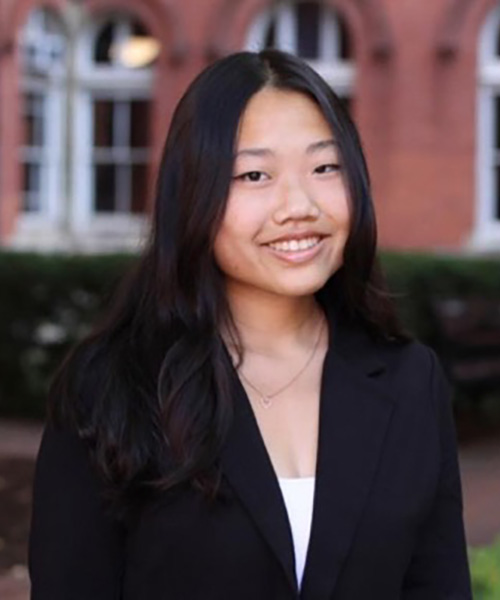
Maggie Yang | 2025年5月31日
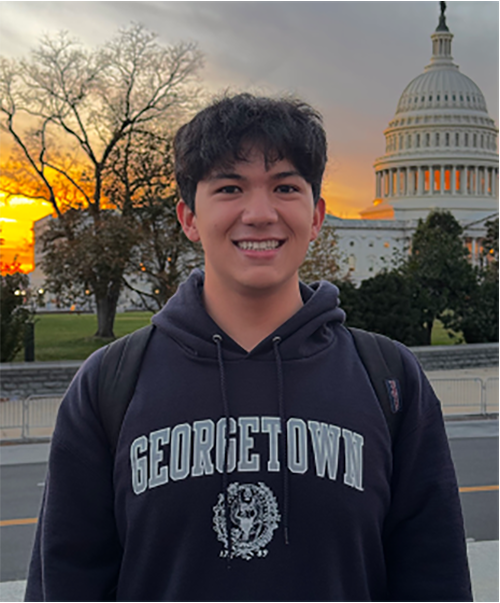
Patrick Coggin | 2025年5月31日
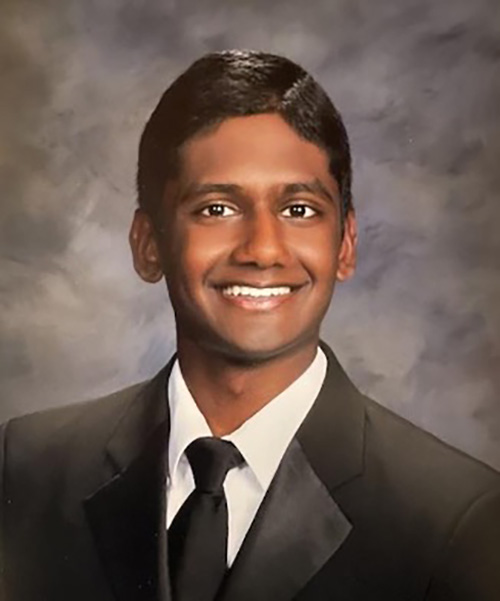
Raghav Akula | 2025年5月31日
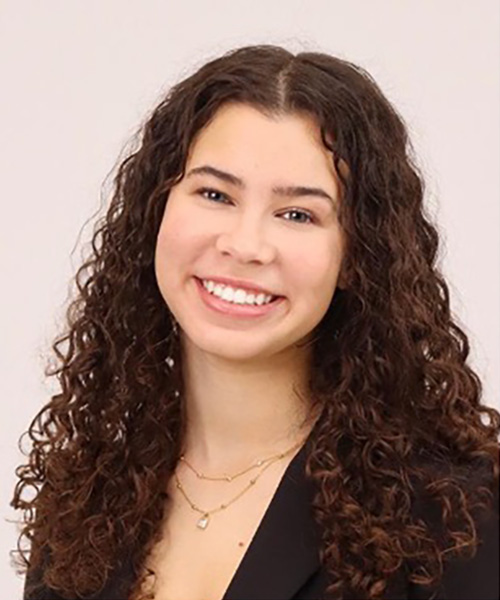
Tiffany Cowan | 2025年5月31日
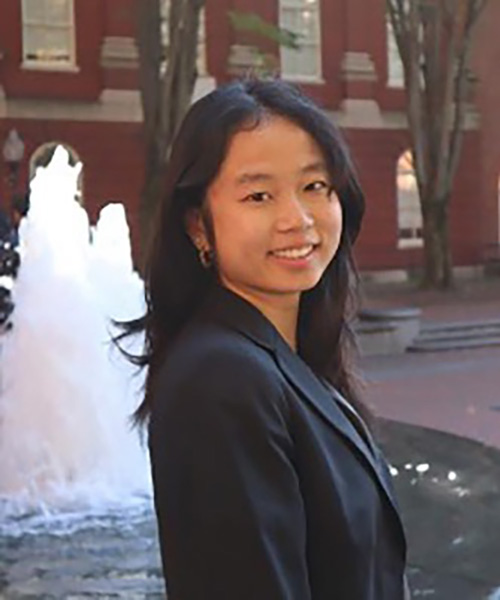
Zifei Zhao | 2025年5月31日

Drew Zacharias | 2025年5月31日
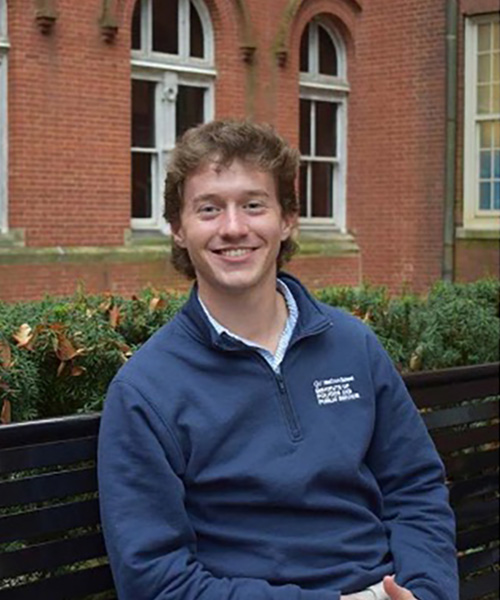
Luke Hughes | 2025年5月31日